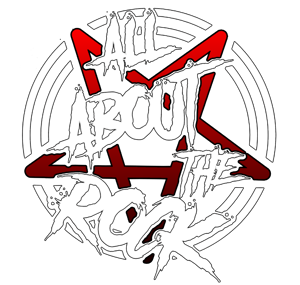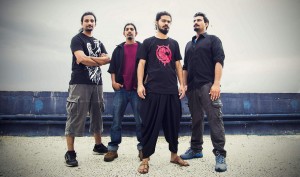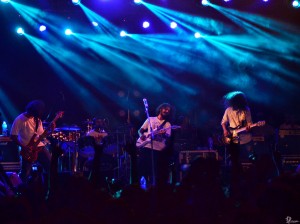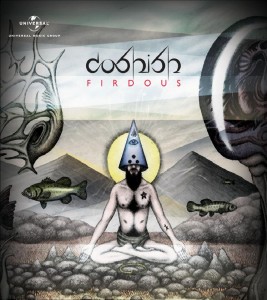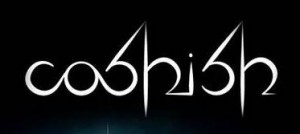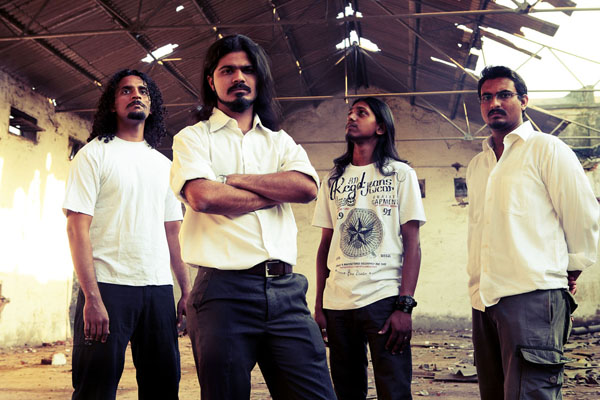
Interview with Coshish
16th April 2014I’m a huge fan of Coshish. Their debut album, Firdous, was one of my top ten highlights of 2013 and the impressive prog rock album has really grown on me since I reviewed it back in December – so much so that if I had to pick my favourite album of 2013, Firdous would be it.
I was therefore delighted when Hamza and Shrikant from the band said they’d love to do a skype interview with myself for All About The Rock.
Interview with Hamza Kazi and Shrikant Sreenivasan of Coshish
Written by Rich Dodgin, 15th April 2014
First of all guys, I really appreciate you giving me your time today. I’m a big fan of Coshish, so I’m doing this interview as a fan as much as anything. So thank you.
(Hamza) Thank you. That really means a lot to us.
Do you want to tell me a little about how Coshish formed – the history of the band.
(Shrikant) So back in 2006 Mangesh (Gandhi), the vocalist, and me formed a band. We started playing in competitions and a few shows here and there. In 2008 we got Hamza on drums and Anish (Nair) on bass.
(Hamza) The funny thing is that I had actually judged them at a college competition, and I found them quite interesting. A month or so later, Shrikant called me to say they had a couple of gigs and did I want to fill in for them. I thought, hindi rock? I was sceptical, but he said give it a shot. So I did, and we kind of gelled. So I said this is cool, let’s stick around and see where it goes from there. Then about 3 months after I joined, the original bassist left and Anish joined.
(Shrikant) I asked him to join – he was my colleague. He said he wasn’t sure as he was more into the prog genre, but we met up to jam to see how it would go. And we all gelled pretty well.
Cool. So would you describe yourself as hindi rock, or prog rock, or both?
(Hamza) So the thing is that there is no genre as hindi rock per say – it’s like having English rock – it doesn’t make sense. The term hindi rock is usually associated with folkish Indian rock bands. But our music is essentially progressive rock, but it’s sung in Hindi. Before we released the album we turned off a lot of fans who thought we were hindi rock.
(Shrikant) That’s the musical mindset of Indian fans.
(Hamza) It’s not wrong. But until they heard the album they had preconceived ideas.
(Shrikant) The audience who like prog rock bands like Porcupine Tree don’t want to hear hindi rock. And that’s because of the music they’ve been exposed to. You can’t blame them.
Yeah, I can understand what you mean. When I was younger and getting into rock music I had preconceived ideas of what I did and didn’t like, based on what I’d heard.
From my point of view, I’ve always thought of you guys as prog rock – but I didn’t want to use the wrong term if that’s not how you see yourselves.
(Hamza) At the base of it all is prog rock. It might be layered with hindi lyrics and a few Indian classical elements here and there – but at the base of it all it’s prog rock.
Cool. As a prog rock fan, what I like about the album is that it has those other influences in there. It make the music unique. It’s not following a formula, and you’re not afraid to try different things. Which is a very creative approach to the music.
What’s the aim or concept of the band? If you had to describe the band’s “world vision” how would you summarise it?
(Hamza) How we’d like to collectively think of us is that we want to make music that changes people in positive way. But also while that is happening, we also want to be known as the band that has the technical capability to make some amazing music. The aim of releasing an album was to put India on the global prog rock map. To create an album that would leave Indian shores and reach out, and let people know that there is prog rock in India. And our aim is to always push the envelope – to make the music as technical as possible, but to mask it with simplicity so that it appeals to casual fans as well as the more serious musically minded fans.
(Shrikant) Yes. We want to appeal to people who maybe wouldn’t normally listen to such technical music. We’re doing something different and we want to expand peoples’ minds.
So, out of all the Indian albums I’ve reviewed for All About The Rock, yours is one of the few on a major record label. Am I right when I say that when you guys went to Universal you’d already recorded the album and you’d already done the artwork and everything?
(Hamza) Everything.
Wow. So you basically went to them and did a presentation or something and said, look we’re Coshish and this is our album? And we’d like you to buy into what we’re doing here and distibute this for us?
(Hamza) That’s pretty much how it happened… except that I happened to knock over a glass of water that was on the table and break it into like 50 pieces (laughs). I was like, oh no, I think I just blew our chance of being on a major label. But it worked it out ok.
So what happened was that we were a self funded band – we saved up – because we didn’t want to cut corners where production was concerned. So we saved up. And we went to the best studio to record drums. We got our friend from NZ who is an amazing producer (Zorran Mendonsa), and we went to Jens Bogren for mastering, so we didn’t cut corners anywhere.
We wanted to make an album that none of the major labels would reject outright. So we approached Sony, we approached EMI, we approached Universl, we approached Times Music. And we were banking on the fact that one of these would agree. If they hadn’t then we would have released it independently.
But fortunately for us Universal was taken aback with the entire packaging and the concept and the fact that we’d gone way beyond the music and that kind of worked. Because when we approached them we had 4000 people on our Facebook fan page and we didn’t really know whether Universal would want to invest in something like this. When they said how many CDs will you sell we just looked at each other and went we don’t know, maybe like 300. And they were like, ok. And then we ended up selling 1600, which is a huge number in India.
What an amazing story! How’s it been working with Universal – have they been really supportive of you guys?
(Shrikant) Yes, very supportive. In fact I had this mindset where the label controls the band and all that stuff, but we never got that feeling not even for a second because we have the freedom to do whatever we want if we want to. We just need to go to them and tell them this is our idea and they’re like, ok, go ahead. There is a trust factor they have for us. And we have for them. Which is why they’re so open about things.
(Hamza) So, it’s not like your traditional artist and label relationship. We’ve all heard stories about how the label has screwed over the artist. But that is really not the case here because they’ve been very very supportive and they’ve never said ok, no don’t do that it won’t work – or that’s not going to fetch us revenue – or anything like that.
For example, we went to them with our three videos and we said this is what it is, what do you think, and they were like it’s great – we’ll push it out. So they’ve pushed the videos onto this new channel, MTV Indies – it’s a channel that’s just launched and that focuses on independent music – and we’ve been getting airplay at least once every couple of hours.
(Shrikant) And it’s all non-commercial bands, rock music and stuff.
(Hamza) So whatever we’ve achieved since the launch has been a joint effort between the band and the label. So that’s how it’s been. We’re extremely happy.
So when you do another album – are you guys signed up to release it with Universal, or do you have to renegotiate at that point?
(Hamza) Terms and conditions are such that we’ve sighed up for another album with them – but the terms for that have not yet been negotiated.
So you haven’t got to churn out another album in six months or anything ridiculous like that? It’s a case of as and when you guys are ready?
(Hamza) We believe that anything that requires quality, requires time. You can’t just force people to write songs and say now that you’ve done well on the first record we want the next record in the next six months. It doesn’t work. We put in 4 or 5 years of hard work into the first album and that’s why it is what it is.
(Shrikant) It’s not just the composition, but the idea behind the songs, behind the concept…
(Hamza) Yeah, and that takes time. So we’ve told them, look you can’t push us, but we’ll do our best to keep the album alive. We’ll do all it takes, but you can’t rush us. It’s working for now.
I hope you don’t me asking this… but how old are you guys ?
(Hamza) Let us ask you that… how old do we look?
(laughs) Oh dear, I’m a terrible judge of age… mid to late 20’s?
(Hamza) Right on.
(Shrikant) I’m the youngest of the band, I’m 25.
(Hamza) Anish and I are 28, and Mangesh is 29.
The reason I asked is that it’s a very mature sounding album – and I mean that in a positive way – as in it’s got depth to it and so on. It’s refreshing to find a fairly young band that has created something with a lot of deep meaning behind it.
(Hamza) I think that has to do with the fact that we’ve all got, not a religious point of view, but some amount of spirituality that kind of binds us. Not that all we think of it in the same way – but we’ve all got it in some way or other. And we’ve all grown up listening to bands like Porcupine Tree, Tool, Opeth, Pain of Salvation – who have meaning behind the music. They’re bands that mean what they sing about, and we’ve been influenced by bands like that, and have always wanted to make an impact – then people won’t forget the album a month after it’s released.
(Shrikant) Also, we want to make people understand how important their life is and that you can do a lot of things excluding the materialistic things. There are a lot of things beyond that – I think that that helps people understand what we are talking about at a higher level.
Cool. And that does come across in the music.
So, when you’re not in the band, what do you do – are you all working?
(Hamza) Shrikant is a full time musician – he works as a music tutor and does live performances. Mangesh is a brand manager for Furtados Music, who are the biggest musical instruments distributor in India. Anish is a voice over artist for commercials and tv. And I’m a specification manager for a Swedish firm – ASSA ABLOY – that provides security solutions. That is my technical side and explains why I like prog rock (laughs)
I used to work in computing – so I know exactly what you’re talking about (laughs)
So how easy is it for you four guys to get together to practice, to play gigs, and record albums?
(Hamza) It’s quite a task. Shrikant and Anish live 60 kilometres away, and Mangesh is like 40 away. Luckily our jam room is at a central point. I live on the fourth floor, and we have a jam room on the ground floor. So when Shrikant and Anish were working in full time jobs we used to work and then jam between 8pm and 10pm, and then have an hour long discussion after that how we should go about packaging the album and how we should market it and so on. And that used to happen 3 times a week.
We did that. But the jam room is ours and it’s free so that helped a lot – we can come here and take our time without having to pay for thinking. So we’re fortunate. But unfortunate with the distance… though it’s not so the much distance as traffic actually.
(Shrikant) That’s the biggest issue.
So, do you guys prefer playing live, or do you prefer creating albums, or do you enjoy them equally in different ways?
(Shrikant) I like both, but for me it’s more playing live – as you can connect with the audience. It’s such a special experience.
(Hamza) You can’t really compare the two as they’re quite different. You get a kick out of performing and playing for an audience, but you get an equal an equal amount of excitment when you create something.
(Shrikant) I agree. But for me I get more pleasure out of playing live.
What was the process for writing the album? I know it took a few years because there’s obviously the music, but there is also the story – and the artwork which is an intergral part of the whole concept.
(Hamza) We can divide the album into 2 parts. The songs that were completely written by Mangesh with Shrikant adding his solo elements to it. Before Coshish had even been formed he’d written 3 or 4 songs. And then he and Shrikant structured those with the earlier band members.
But when Anish and I came in we interpreted those parts in our own way – adding a prog touch to it, and alternative rock vibes. So it wasnt really progressive until Anish and I took those ideas and gave them a new dimension. So that was one set of songs. And then we realised there was a thematic link between the songs. So we thought why not link it all into a story and write the remaining songs to fit that bigger story. So we created a story and wrote the remaining 4 or 5 songs to fit that.
(Shrikant) But that didn’t affect our way of composing songs. We still had the freedom to make songs the way we wanted to – and then we would see if they fitted.
(Hamza) And the song writing for the second half of songs was different. For example, I might come up with a drum part or Shrikant a riff or Anish a bassline, and we’d say ok this is cool let’s work with this then we’d jam on that for hours and record part of it – and then go back and listen to it and see if we could take it further from there. And the song ‘Firdous‘ was completely written, and then scrapped, and we waited a year because we knew it wasn’t working.
(Shrikant) We recorded it and said, something is wrong what are we doing. So we scrapped the whole song. And now the current version is so much better.
(Hamza) And even though it’s the first song on the album and the story, it was written last.
(Shrikant) And when we came back to it, to write it the second time, it didnt take long – especially the lyrics.
So an organic process then?
(Hamza) Yeah, we don’t like stepping on each others toes. We give each other ideas of things to try – we do that – but we don’t dictate. We give each other rough ideas. We encourage that, rather than telling each other what it should be like. We don’t, for example have the drummer telling a guitarist to play it like this. Because be knows his insturment better than me. But we are open and fight a lot. But it works as it’s for the music at the end of the day.
That’s very cool, because it means all four of you are empowered to input into the band. You’re not doing a Metallica, where the bass player doesn’t get to write anything.
(Hamza / Shrikant) (both laugh)
(Hamza) No, our bass player writes a lot.
What’s the reaction been like to the album in India, and globally?
(Hamza) The funny thing is we’ve recieved more international reviews than Indian reviews. I think that the Indian media is not as in tune with prog rock as people like you are. When you hear a prog rock album you know what’s gone into creating that – and you can connect to it – musically if not lyrically. From journalists and the media the response has been more positive from outside India than within India.
Muscially, we’ve reached out to the the technical audience as well as the bollywood Indian audience. For example, we just got a message saying hey guys I’m a big fan of ‘Raastey‘, and we’re like, great, but we’ve also got a couple of other songs you should check out. But then that happens with every band – it happened with Nirvana with ‘Smells Like Teen Spirit‘, and with Tool with ‘Schism‘.
Yeah. And music these days is much more disposable isn’t it. When I was growing up I bought albums and listened to them from start to finish religiously. Kids these days just want to download singles. Maybe that’s why the album struck such a note with me – because it is an album where I want the whole experience from start to finish. I want the peaks and troughs and the different mood changes.
So you’re getting lots of positive feedback though – you said you sold 1600 copies of the album?
(Hamza) Yes. That’s the physical CDs. We also sold digital copies. We reached number 8 on iTunes India, and 28 on the Nokia Music Charts. So there has been a fair amount of digital sales where the people haven’t bought a physical copy. But the physical copy has been purchased by the hardcore fans and the whole puzzle element boosted that. (The physical CD packaging contains photos and clues, that allow the listener to more fully understand the concept of the story).
To put things into perspetive, the band Scribe, who have twenty five thousand Facebook fans and are one of the biggest metal bands in the country, sold only 275 physical CDs of their album.
Wow. But with Firdous, the packing and artwork and puzzle element is such an integral part of the album and the listening experience – it really is a meaningful part of the album and adds to the experience of the listener. So I can understand why so many people would want a physical copy.
You guys do realise that you have created an incredibly hard act to follow for yourselves – how do you follow this up with another album?
(Hamza) We’ve got 1 song left over from the recording session.
(Shrikant) We have started working on the second album.
(Hamza) We’ve started on a few tracks and a few structures are in place. We know that technically it will surpass the first album. The hardcore prog rock fans will be like, we prefer this to the first album – but we don’t know how much commercial value it will have.
(Shrikant) But we hope people will start to understand why we are doing this. We need to evolve – as people and as musicians. We can’t stay in the same place. You cant expect the next album to be the same. We have to evolve and move things up a level.
Yeah, I understand what you’re saying. An,d from a fans point of view, I like bands who aren’t afraid to try different things – so that’s cool to hear. And I would think that a lot of the people who bought the first album will follow you guys as you develop.
I read somewhere that you’re thinking of doing an acoustic version of the album – is that true?
(Hamza) Actually, we’ve scrapped that idea. That idea only came around because in India – and Mumbai in particular – there are a lot of venues that cater to an acoustic environment – and we were missing out on that. And our music can be watered down in that way. Bit I think we’ll maybe do an acoustic renditions album after the second album, if that makes sense – revisiting some of these songs at a later date.
Cool. I presume at this point it is impossible to give any rough idea of when the next album will be coming out? I ask as a fan and as someone who is keen to hear more of your music.
(Hamza) We have 1 song 90% done, a drum structure of another 10 minute long song, and we’ve got another rough structure of another 7 minute long song. So we’ve got these 3 tracks sort of ready. But we also need more accessible tracks – like ‘Raastey‘ and ‘Maya‘ from Firdous.
(Shrikant) More melodic songs.
(Hamza) I think maybe 3 or 4 years to the next album.
(Shrikant) Maybe 2 or 3 years.
Sure. Well, it’ll be worth the wait – and I’m sure fans would rather you take the time to create something as good as the first one, if not better, than try and rush something out.
What is the scene like in India, and Mumbai in particular?
(Hamza) It’s growing. More people are getting into rock and metal. And therefore there are more venues. The scene is growing. But saying that, it’s still a long way from being a full time source for one band – right now we can’t make a living from being in Coshish. It’s going to take time, but it is growing for sure. And people are learning the value of paying for music.
(Shrikant) It’s surprising to see kids coming up and buying the album – to see them spending lots of money to come to a gig, and travel, and buy merchandise and CDs.
Final point – have you guys got anything you’d like to say to our readers?
(Hamza) We’d like to thank everyone from out of India especially because we’re singing in hindi it’s hard for you to maybe understand what we’re singing about, but you’re still getting it and are still passionate about our music. And it means a lot when you go and order a limited edition tshirt off us and wear it and put it up and take pictures – it’s disolving borders of countries. So we’d really like to thank you guys in general for being kind enough to do that.
(Shrikant) I never really imagined to have so much support from the Indian and international audience – it’s almost like a dream come true situation for us – and we’d really like to thank everyone.
(Hamza) A general thank you. And we’d also like to thank Porcupine Tree, Tool, Pain of Salvation, Katatonia, Black Sabbath… all these bands. Because if it wasn’t for them we wouldn’t haven’t existed.
(Shrikant) Yeah, for me ‘War Pigs‘ was the song – I was like wooah, whats happening? I need to start learning the guitar so that I can play that song…
(Hamza) So yeah a general thank you note to everyone for supporting us.
Well thank you both for giving me the time today to speak to you guys and learn some more about the band and the way in which you created such a fantastic album.
(Hamza) Thank you so much.
(Shrikant) Thank you.
Coshish can be contacted via their Facebook page: https://www.facebook.com/Coshish
Check out the three official videos from the album below:
https://www.youtube.com/watch?v=hfsD1YgX9k8
